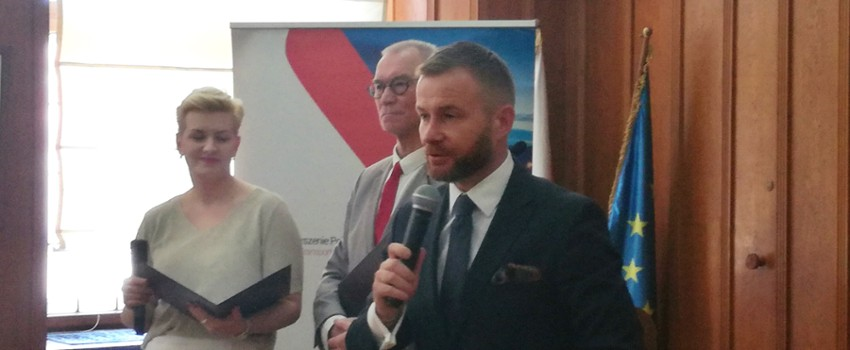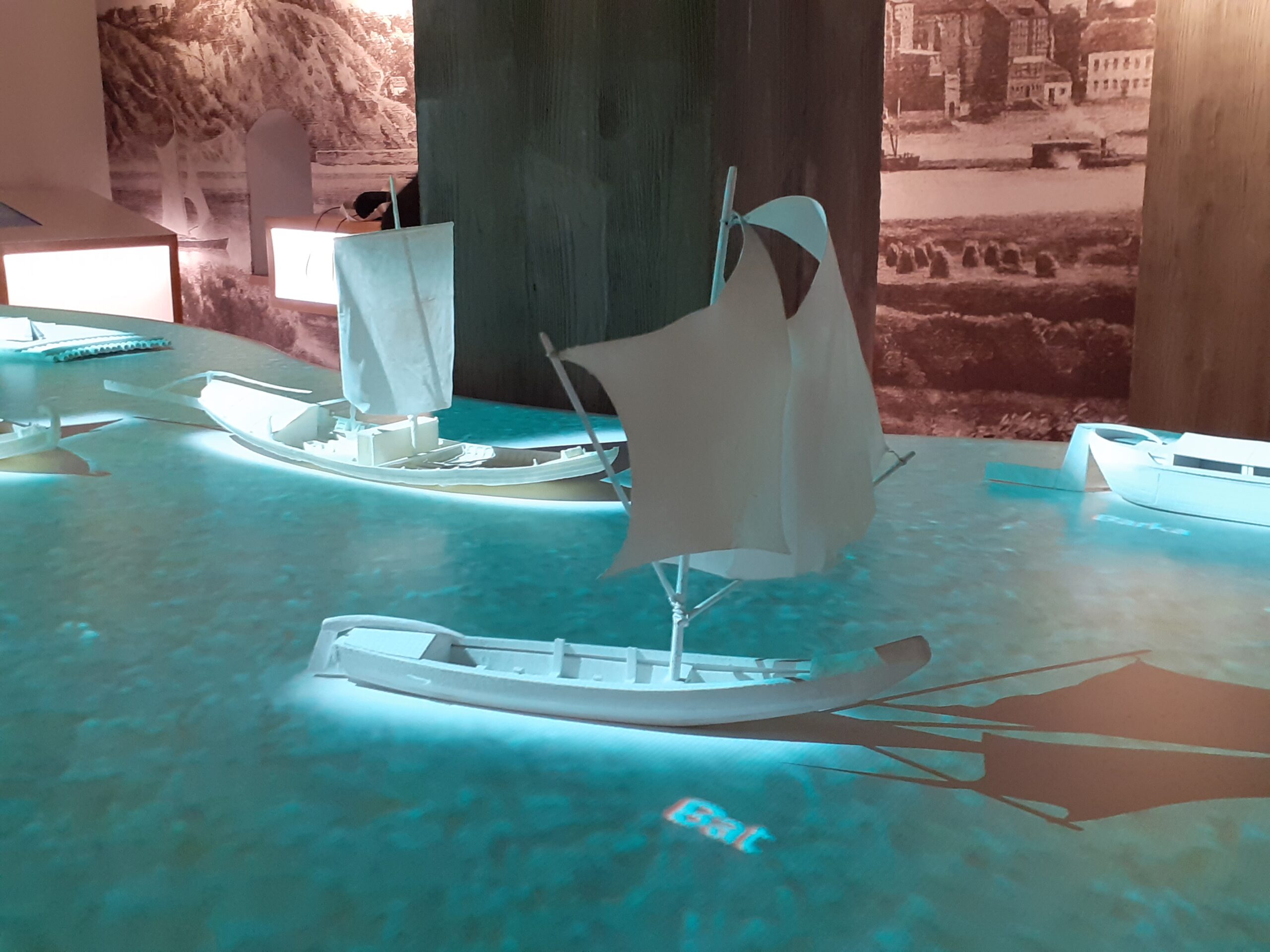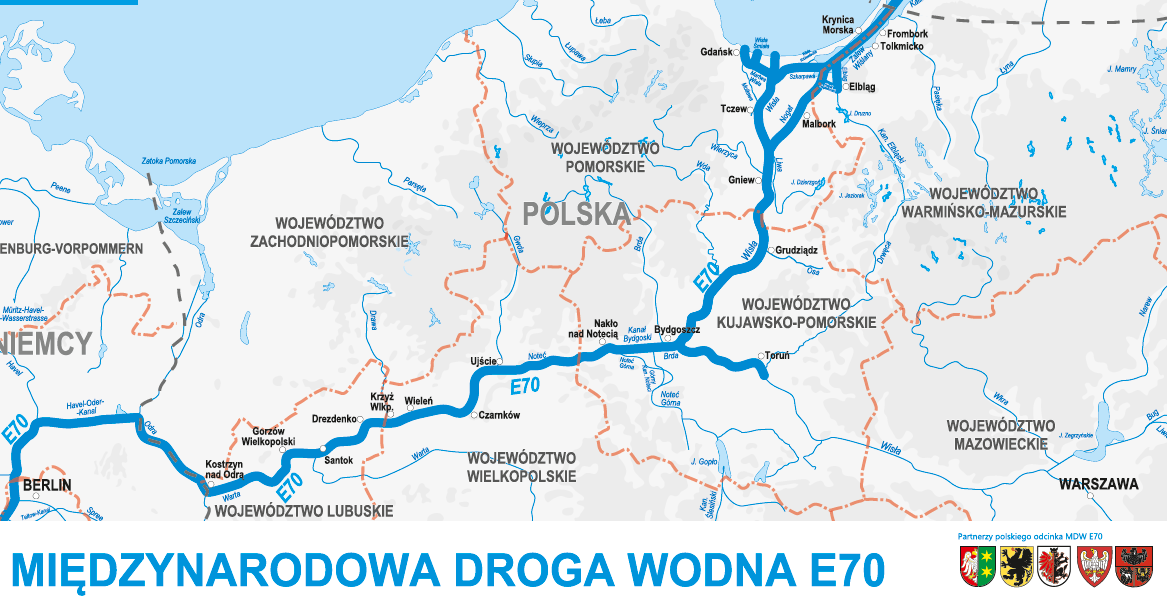On 19 March, 2019, at the Marshal's Office of the Kujawsko-Pomorskie Voivodeship in Toruń, a panel session was held under the motto: “Multimodality and using the potential of inland waterways in the Baltic-Adriatic Corridor”. The event was part of a multifaceted discussions that took place during the 26th edition of Welconomy Forum Toruń.
The aim of the panel session was economic promotion of the Kujawsko-Pomorskie Voivodeship by strengthening strategic links between countries and regions in the Baltic-Adriatic transport corridor. The issues of improving transport accessibility, intensifying transport and promoting new directions of movement for people and goods were also raised. The discussions covered activities related to the location of the Bydgoszcz-Solec Kujawski multimodal platform.
The discussions and speakers’ presentations were largely related to the possibility of navigation on the Vistula. Prof. Zygmunt Babiński, PhD, Dean of the Department of Physical Culture, Health and Tourism at Kazimierz Wielki University in Bydgoszcz, drew attention to degradation of the river, which for nearly 50 years has not met conditions for regular inland transport. According to the discussion participants, navigational conditions on the Vistula are poor and the riverbed itself is getting lower in some places. Water transport is possible, but only sporadically.
Ms Marta Kunicka, representing the Department of Water Management and Inland Navigation at the Ministry of Maritime Economy and Inland Navigation, discussed current activities related to work on the Vistula River Waterway Development Programme. She presented, among other matters, information on work on a Feasibility Study for the comprehensive development of international waterways: E-40 for the Vistula River on the section from Gdańsk to Warsaw, E-40 from Warsaw to the Poland-Belarus border (Brest), and E-70 on the section from the Vistula River to the Vistula Lagoon (Elbląg), commissioned by the Port of Gdańsk Authority. Ms Kunicka pointed out that all the analyses carried out at the programme preparation stage would be used to make a decision on the choice of concept and recommended course of the Polish section of the Vistula-Dnieper international waterway from Warsaw to Brest. It is expected that work on a draft Vistula River Waterway Development Programme, including the Polish section of the above-mentioned connection, will be completed around the end of 2020.
In the subsequent part of the session, Mr Rafał Modrzewski, Deputy Director of the Department of Strategic Planning and Economic Development at the Marshal’s Office of the Kujawsko-Pomorskie Voivodeship, presented the effects of work under the EMMA project, including the creation of a multimodal platform for Bydgoszcz-Solec Kujawski. Mr Maciej Brzozowski, Director of the Port of Hamburg Representative Office in Poland, presented the manner in which an intelligent seaport can be an important link in the global supply chain. Mr Dariusz Mierkiewicz, Business Development Manager for Poland of the Port of Koper, spoke on the role of the port of Koper in the Baltic-Adriatic Transport Corridor. As he pointed out, the port is developing dynamically, not only in terms of transhipment, but also expanding transport links with suppliers and logistics centres. In turn, Dr Michał Tuszyński of the Association of Amber Highway Cities presented the TENTacle flagship project, aimed at preparation of a coherent urban-port transport system. It is intended to facilitate development of both a city and its port, as well as the comfort of residents.
At the end of the session, Ryszard Świlski, President of the Association of Polish Regions of the Baltic-Adriatic Transport Corridor, stressed in his speech that the Baltic-Adriatic corridor is gradually becoming a lever for development of our country and, consequently, our regions. According to the President, the recent years and the work that has been done by all the signatories of the Local Government Agreement for the Baltic-Adriatic Corridor is bringing the intended results. In the first place, by active participation in evaluation of projects regarding the development of the entire Baltic-Adriatic corridor. Secondly, as a result of the emergence of new perspectives for the participation of individual municipalities and private entities in the whole process of operation of the transport corridor. Initiatives are also discussed to extend the Baltic-Adriatic Corridor to Sweden, based on the Gdynia-Karlskrona motorway of the sea.




